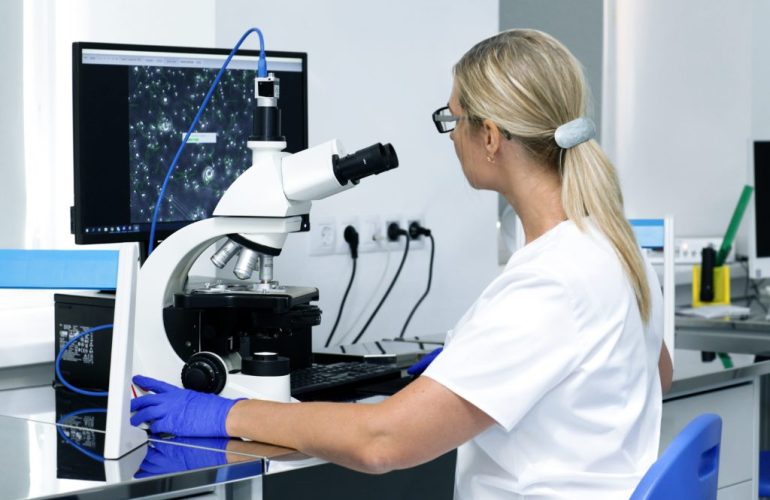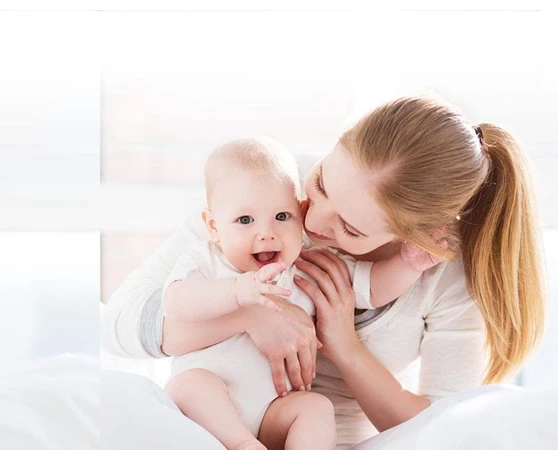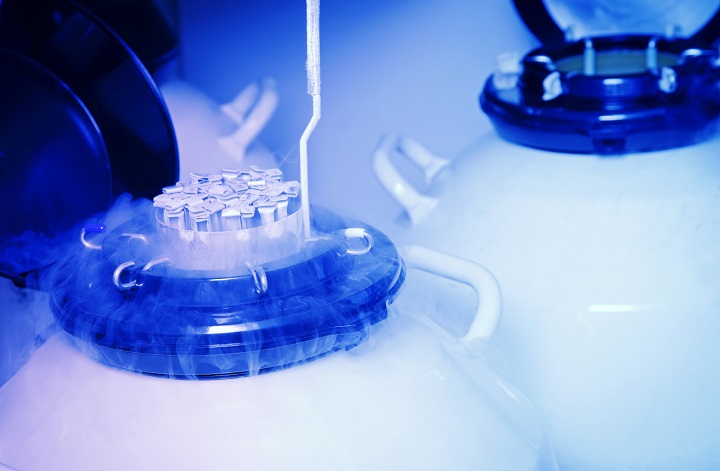Understanding The Menstrual Cycle And Ovulation
Most Fertile Age for a Woman
Every woman’s body is unique, and so is their menstrual cycle. It’s essential to have a basic understanding of the menstrual cycle and ovulation to plan for pregnancy or prevent unwanted pregnancy. The menstrual cycle begins on the first day of the period and lasts for an average of 28 days. However, some women may have a shorter or longer cycle, which is normal.
Ovulation occurs when the ovaries release a mature egg into the fallopian tube, where it awaits fertilization from sperm. Ovulation typically occurs around day 14 of the menstrual cycle, but again, this can vary. Tracking ovulation can determine the most fertile time of the month and is essential for planning or preventing pregnancy.
| Factors Affecting Ovulation and Menstrual Cycle | |
|---|---|
| 1. Age | Women are most fertile in their 20s and early 30s. After 35, the quality and quantity of eggs decline, reducing the chances of conceiving and increasing the risk of pregnancy complications. |
| 2. Hormonal Imbalances | Irregular periods may indicate a hormonal imbalance, such as Polycystic Ovary Syndrome (PCOS), thyroid dysfunction, or high prolactin levels, affecting ovulation and fertility. |
| 3. Weight and Lifestyle Habits | Being underweight or overweight, excessive exercise, smoking, and alcohol consumption affect the menstrual cycle and ovulation, reducing the likelihood of conception. |
Tracking the menstrual cycle and ovulation can help women take control of their reproductive health. Various methods for determining ovulation include basal body temperature, cervical mucus changes, ovulation predictor kits, and fertility tracking apps. It’s always recommended to consult a healthcare provider for guidance on fertility concerns or family planning.
Factors Affecting Fertility İn Women
For women, fertility is a complex and delicate issue. A woman’s most fertile age is typically between the ages of 20 to 35. During this time, a woman’s ovaries are still functioning optimally, and the chances of conceiving are much higher. However, there are several factors that can affect a woman’s fertility, both positively and negatively.
Genetics: Genetics play a significant role in determining a woman’s fertility. If women in your family tend to experience early menopause or struggle with fertility, you may be at higher risk for the same issues.
Weight: Weight can also affect fertility, both being underweight or overweight. Women who are underweight may have irregular periods or stop ovulating altogether. On the other hand, women who are overweight may experience issues with ovulation, which can make it difficult to conceive.
| Factors affecting fertility: | Positive impact: | Negative impact: |
|---|---|---|
| Age | Increase maturity and life experiences to share with child. | Lower quality and quantity of eggs with age. |
| Weight | Healthy weight may increase fertility. | Underweight or overweight can affect ovulation and hormone balance. |
| Smoking | Non-smokers have higher chance of healthier pregnancy and baby. | Smoking can lower fertility, increase risk of miscarriage and birth defects. |
| Medical history | Healthy reproductive system and hormone levels can increase fertility. | Prior health conditions can affect reproductive and hormone balance. |
Smoking: Smoking can have a significant impact on a woman’s fertility. Women who smoke have a higher risk of ovulatory infertility, and they experience earlier menopause on average. Additionally, smoking during pregnancy can increase the risk of miscarriage, premature birth, and birth defects.
It’s important to understand the factors affecting fertility in women to make healthy decisions for your reproductive health. By maintaining a healthy weight, avoiding smoking, and seeking medical care when necessary, you can increase the chances of conceiving and having a healthy pregnancy. If you are struggling with infertility, there are also medical options available to help you on your journey towards parenthood.
Ideal Age Range For Women To Conceive
As women, it is important to understand our most fertile age for when we plan to have children. The most fertile age for a woman is typically in her 20s and early 30s. During this time, a woman’s body is biologically prepared for conception, and the chances of successful pregnancy are at their highest. This is due to the fact that women are born with a finite number of eggs and as we age, the quality and quantity of eggs decrease.
While it is still possible to conceive in your 30s and 40s, it becomes more difficult. As a woman nears menopause, typically around the age of 50, her chances of a successful pregnancy decrease significantly. That being said, there are various factors that can affect a woman’s fertility, such as genetics, smoking, and overall health.
| Factors that can affect fertility in women | |
|---|---|
| Age: | As previously mentioned, a woman’s fertility decreases as she ages. |
| Health: | Chronic health conditions such as diabetes, obesity, and thyroid issues can affect a woman’s fertility. |
| Smoking: | Smoking can cause a decrease in fertility in both men and women. It also increases the risk of miscarriage and birth defects. |
It is important to maintain a healthy lifestyle if you are planning to conceive. This includes regular exercise, a healthy diet, and avoiding smoking and excessive alcohol consumption. If you are struggling to conceive and you are between the ages of 35-39, it is recommended that you speak with a healthcare provider about your options. Medical options for infertility include fertility drugs, intrauterine insemination (IUI), and in vitro fertilization (IVF).
Overall, it is important to be aware of the ideal age range for women to conceive and take care of our bodies as best as we can. While fertility decreases with age, there are still various options available for women who wish to have children later in life.
Risks And Complications Of Delaying Pregnancy
Deciding when to have a baby is one of the biggest life decisions for most women. Factors such as career goals, financial stability, and personal preferences contribute to the decision-making process. However, delaying pregnancy can come with risks and complications that many women are not aware of. The most fertile age for a woman to conceive is in her 20s, and delaying pregnancy beyond that age can increase the chances of experiencing fertility problems.
There are several factors that can contribute to the risks and complications of delaying pregnancy. One of the major factors is age. Women who delay pregnancy until their 30s or 40s have a higher risk of developing infertility issues, miscarriage, and genetic abnormalities in their babies. Additionally, women who conceive later in life have an increased risk of medical conditions like gestational diabetes and pre-eclampsia. Overall, the older a woman is when she becomes pregnant, the higher the risk of complications for both the mother and baby.
It is important for women to understand the risks and complications of delaying pregnancy and take steps to mitigate them. The following table illustrates the risks associated with age and pregnancy:
| 20s | 30s | 40s | |
|---|---|---|---|
| Fertility | Most fertile age with the highest chance of conception | Reduced fertility, increased chance of miscarriage | Low fertility, higher chance of multiple miscarriages |
| Complications | Lowest risk of complications | Increased risk of gestational diabetes and pre-eclampsia | Higher risk of genetic abnormalities and pregnancy-related complications |
| Parental Health | Fewer health problems associated with advanced age | Increase in parental health problems | Higher risk of parental health problems |
As the table shows, delaying pregnancy comes with increased risks and complications. Women who choose to delay pregnancy should be aware of the risks and take steps to minimize them, including maintaining a healthy lifestyle, seeking fertility treatment, and consulting with a doctor about any potential health issues.
Lifestyle Habits That Can Affect Fertility
When it comes to fertility, taking care of your body is essential. There are several factors that can affect a woman’s chance of conceiving, and lifestyle habits are one of them. By adopting healthy lifestyle habits, you can increase your chances of getting pregnant and reduce the risk of infertility.
One of the most important lifestyle habits that can affect fertility is maintaining a healthy weight. A BMI (Body Mass Index) that’s too high or too low can cause hormonal imbalances that affect ovulation. So, it’s essential to keep your weight in a healthy range for your height and age to improve your chances of getting pregnant.
| Factors That Affect Fertility | |
|---|---|
| Age | Stress |
| Weight | Smoking |
| Exercise | Alcohol Consumption |
Smoking is another habit that can impact fertility negatively. According to studies, smoking can cause early menopause, miscarriages, and even affect the quality of eggs and sperm. Quitting smoking has numerous health benefits, and improving fertility is one of them.
Stress is also a significant factor that can affect fertility levels. High-stress levels can cause changes in the body, affecting the overall hormonal balance. Managing stress through exercise, meditation, and other relaxation techniques can help you feel more relaxed, reduce anxiety levels and improve your chances of conception.
Finally, alcohol consumption can also impact fertility negatively. Studies suggest that women who consume more than five drinks in a week have lower fertility levels than women who don’t drink alcohol at all. So, it’s best to moderate alcohol consumption (if you consume at all) to improve your chances of getting pregnant.
Overall, adopting healthy lifestyle habits is vital for improving your chances of getting pregnant. By maintaining a healthy weight, quitting smoking and drinking, managing stress levels, and exercising, you can increase your chances of conceiving and reduce the risk of infertility.
Medical Options For Women Struggling With Infertility
Infertility is the inability to conceive after having unprotected sex for at least a year. This condition can be stressful, and it affects millions of couples globally. For women struggling with infertility, it can be a daunting experience. Fortunately, there are various medical options available to assist women in achieving pregnancy.
In Vitro Fertilization (IVF)
IVF is one of the most commonly used fertility treatments. It involves the fertilization of eggs and sperm outside the body, in a laboratory dish. The fertilized egg is then transferred to the woman’s uterus, where it grows and develops. IVF is recommended for women with blocked or damaged fallopian tubes and those with ovulation problems. During IVF, women are required to take fertility drugs to stimulate the ovaries to produce more eggs. It’s an expensive procedure and can take several attempts before achieving pregnancy.
Intrauterine Insemination (IUI)
IUI is a procedure where sperm is washed and placed directly into the woman’s uterus during ovulation. This procedure is recommended for women with mild endometriosis, low sperm count, and decreased sperm mobility. Women are required to take fertility-enhancing drugs to help with ovulation. IUI is less invasive and less expensive than IVF.
| Medical Options | Experience |
|---|---|
| IVF | Expensive and invasive. Can take several attempts before achieving pregnancy. |
| IUI | Less invasive and less expensive than IVF. |
| Clomid | An oral medication that can stimulate ovulation. Effectiveness may vary. |
Clomid
Clomid is an oral medication that can stimulate ovulation. It’s a commonly used fertility drug and has been in use for over 40 years. Clomid is recommended for women with ovulation problems. The medication works by blocking estrogen production, which tricks the body into producing more follicle-stimulating hormone (FSH), responsible for ovulation. While Clomid is less invasive and less expensive than IVF and IUI, its effectiveness may vary.
Women struggling with infertility have various medical options available to them. IVF, IUI, and Clomid are some of the most commonly used fertility treatments. These treatments can be expensive and may not be covered by insurance. It’s essential to consult with a fertility specialist to determine the best medical option for your individual situation.
Frequently Asked Questions
1. What is ovulation and why is it important for fertility?
Ovulation is the release of a mature egg from the ovary, which is necessary for fertility because it allows for fertilization by sperm. It typically occurs once per menstrual cycle.
2. What factors can affect a woman’s fertility?
Various factors can affect fertility in women, such as age, hormonal imbalances, ovarian disorders, uterine abnormalities, sexually transmitted infections, and lifestyle factors like smoking, alcohol consumption, and obesity.
3. What is the ideal age range for women to conceive?
The ideal age range for women to conceive is generally considered to be in their 20s and early 30s, as fertility typically declines after age 35.
4. What are some risks and complications associated with delaying pregnancy?
Delaying pregnancy can increase the risk of infertility, pregnancy complications such as gestational diabetes and hypertension, and chromosomal abnormalities in the baby.
5. What lifestyle habits can affect a woman’s fertility?
Lifestyle habits that can affect a woman’s fertility include smoking, alcohol consumption, drug use, poor diet and nutrition, stress, and lack of exercise.
6. What medical options are available for women struggling with infertility?
Medical options for infertility include fertility medications, intrauterine insemination (IUI), in vitro fertilization (IVF), and other assisted reproductive technologies (ART).
7. How can women prepare themselves for a healthy pregnancy?
Women can prepare themselves for a healthy pregnancy by maintaining a healthy diet and weight, quitting smoking and limiting alcohol consumption, managing chronic health conditions, taking prenatal vitamins, getting regular exercise, and scheduling preconception check-ups with their healthcare provider.




